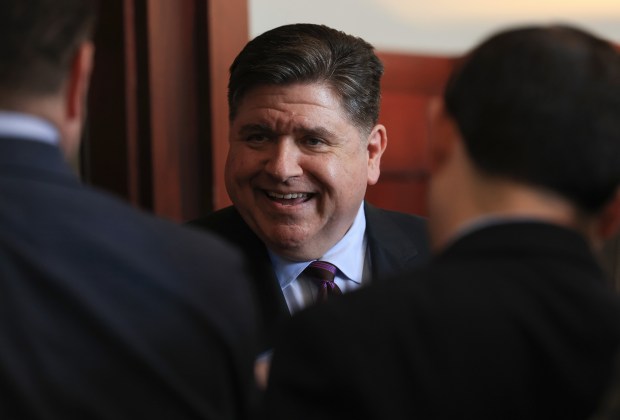The Aurora City Council Tuesday night approved a $759.6 million city budget for 2025, almost $200 million higher than last year’s budget.
It is the largest city budget ever.
While the overall budget is higher, it also is based on an expected large jump in revenue for 2025, up to $633.4 million. The rest of the money for the budget will come from $126.2 million in project carryovers and revenue from 2024 and other prior year budgets.
Chris Minick, the city’s chief financial officer, has said the budget is balanced, and anticipates strong consumptive tax revenues – sales taxes, gas taxes, food and beverage taxes and hotel taxes – as well as an increase in the city’s equalized assessed value to $5.5 billion.
Minick also said while the city will ask for more property taxes, because of the higher assessed value, the tax rate is estimated to be lower than it has been since 2009.
Minick said the change in assessed value – which the city will not find out until March or April 2025 – should lower the property tax rate for the city from about $1.69 for each $100 of assessed value to $1.67 for each $100 of assessed value.
That would mean an increase of about $87 on the city’s portion of the tax bill on a $300,000 house, according to city estimates.
Most of that increase, about $58, is attributable to the city’s mandated contribution to the public safety pension funds. Minick said the city has to contribute about $2 million this year to the Police Pension Fund, and about $1.1 million to the Fire Pension Fund.
The rest of the increase is attributed to bonds the city passed to build two new fire stations, and the new Public Works Building.
Ald. Carl Franco, 5th Ward, the Finance Committee chair, said those are the things the city is either mandated to do, or has to do for the public.
“These are things that are either out of our control or things we actually have to get done,” Franco said.
The budget includes a $254.9 million general fund, which is the city’s basic operating fund, an increase of about $20 million from 2024. Between two-thirds and three-quarters of the general fund comes from four city departments: The Police Department, the Fire Department, the Public Works Department and Public Facilities.
About 33% of the money in the general fund comes from property taxes, with the rest coming from sales and gas taxes, food and beverage tax, hotel tax and building permits.
The budget anticipates the equivalent of an additional 42 full-time employees, eight of those sworn police officers as well as two sergeants and a digital forensic employee, and one new administrative support services chief in the Fire Department.
The city has a number of capital projects in the budget, many of them carryovers from past years, including the final part of the new Public Works Building and the RiverEdge Park expansion.
Other projects for the year include buying the valet parking garage from the Aurora Civic Center Authority; building two new fire stations and planning for a third; improvements to Bilter Road; improvements at Galena Boulevard and New York Street downtown; and improvements to Millennium Park.
Aldermen approved the budget with a 10-2 vote, with Alds. John Laesch, at large, and Ted Mesiacos, 3rd Ward, voting against it.
Mesiacos said he believed the budget was balanced partially on the backs of cuts in funding for city parks.
He also said there is supposed to be a master plan for Phillips Park, but that neither the aldermen nor the public has seen the data driving that master plan.
“It impacts our parks, and the enjoyment of our residents,” he said.
Alex Alexandrou, the city’s chief management officer and one of the crafters of the budget, said there is a master plan for Phillips Park in the process but not final yet. He said part of that process has been holding open houses and surveys involving the public.
Also, he said “neither park funding for Phillips Park nor overall park funding have been cut in the 2025 budget.”
slord@tribpub.com



